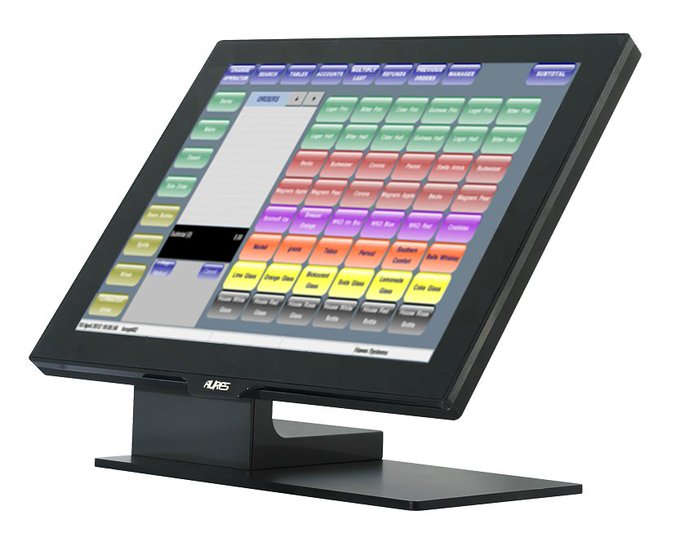Investing in a good quality EPOS system can be a big step for any business. Below are some of the most frequently asked questions, and answers to help with your research.
What is an EPOS system?
An EPOS system, or Electronic Point of Sale system, is a computerised system used by businesses to process sales transactions, manage inventory, and track various aspects of their operations. It typically includes hardware such as a cash register, barcode scanner, receipt printer, and software that integrates these components to facilitate sales and streamline business processes.
How does an EPOS system work?
An EPOS system works by capturing sales data at the point of sale. When a customer purchases a product or service, the system records the transaction details, including the items sold, prices, and payment methods. This information is then stored in a centralized database, enabling businesses to generate reports, track inventory, and analyse sales data.
What are the key features of an EPOS system?
Key features of an EPOS system may include sales processing, inventory management, customer relationship management (CRM), reporting and analytics, staff management, integration with payment gateways, loyalty programs, and support for multiple payment methods.
What are the benefits of using an EPOS system?
Using an EPOS system offers several benefits, including improved efficiency in processing sales, accurate inventory management, real-time reporting and analytics, streamlined business operations, enhanced customer service, simplified staff management, and the ability to make data-driven business decisions.
Can an EPOS system be used in different types of businesses?
Yes, EPOS systems are used in various types of businesses, including retail stores, restaurants, cafes, bars, hotels, supermarkets, pharmacies, and more. The specific features and configurations of the EPOS system may vary depending on the industry and business requirements.
What hardware is required for an EPOS system?
The hardware required for an EPOS system typically includes a touch screen computer or tablet, cash register or terminal, barcode scanner, receipt printer, and in some cases, additional peripherals such as customer displays, kitchen printers, or card readers for payment processing.
Can an EPOS system integrate with other business systems?
Many EPOS systems offer integration capabilities with other business systems such as accounting software, customer relationship management (CRM) tools, loyalty programs, and e-commerce platforms. This allows for seamless data flow and synchronization between different systems, reducing manual efforts and ensuring accurate information across the organization.
Is it possible to customize an EPOS system to meet specific business needs?
Yes, depending on the EPOS system provider, there may be options to customize certain aspects of the system to align with specific business needs. Customization may include tailored reporting, specific workflows, branding elements, or integrations with industry-specific software.
How secure is an EPOS system in terms of data protection?
EPOS systems prioritize data security to protect sensitive customer information and transaction data. They employ encryption methods to secure data transmission, use secure payment gateways, and implement user access controls to restrict unauthorized access. Regular software updates and compliance with industry standards further enhance security measures.
Can an EPOS system handle multiple payment methods?
Yes, EPOS systems are designed to handle multiple payment methods, including cash, credit cards, debit cards, mobile wallets, and contactless payments. They integrate with payment processors and enable businesses to accept various payment types to accommodate customer preferences.
Does an EPOS system provide reporting and analytics?
Yes, reporting and analytics are integral features of EPOS systems. They provide businesses with insights into sales performance, inventory levels, customer behaviour, and other key metrics. Reports can be generated in real-time and customized to analyse specific aspects of the business, aiding in decision-making and identifying areas for improvement.
Can an EPOS system be used for inventory management?
Yes, EPOS systems typically include inventory management capabilities. They allow businesses to track stock levels, manage purchase orders, receive goods, monitor product movement, and automate inventory replenishment. This helps businesses optimize their inventory, prevent stockouts, and streamline the supply chain.
Can an EPOS system track customer data and facilitate loyalty programs?
Yes, EPOS systems can capture and store customer data, such as purchase history, contact details, and preferences. This information can be leveraged to implement loyalty programs, personalized marketing campaigns, and targeted promotions. EPOS systems often offer customer management features to facilitate these activities.
What kind of customer support is available for EPOS system users?
EPOS system providers typically offer customer support through various channels, including phone, email, live chat, and support tickets. Support may include assistance with system setup, troubleshooting technical issues, training resources, and ongoing software updates. The level of support and response time may vary depending on the provider and the chosen support plan.
How long does it take to set up an EPOS system?
The setup time for an EPOS system can vary depending on the complexity of the business requirements and the chosen system. The setup process may take a few days or weeks for small businesses with simpler needs. However, larger businesses or those with specific customization requirements may require more time for implementation, including hardware installation, software configuration, and staff training.
Can an EPOS system operate offline?
Some EPOS systems have the capability to operate in an offline mode, allowing businesses to process sales and store data even when there is no internet connection. Once the connection is restored, the system can synchronize the offline data with the central database. Offline functionality may vary depending on the EPOS system, so verifying this capability with the provider is essential.
Are there any limitations or considerations when using an EPOS system?
While EPOS systems offer numerous benefits, there are a few considerations to keep in mind. These include the initial cost of hardware and software, ongoing subscription fees, the need for reliable internet connectivity, the learning curve for staff, potential integration challenges with existing systems, and the importance of selecting a reputable and reliable EPOS provider to ensure system stability and support.
If you’d like to know more about the systems we provide and how they can benefit your business, you can contact us here, pop an email to sales@haven-systems.co.uk or call us on 01646 601992

